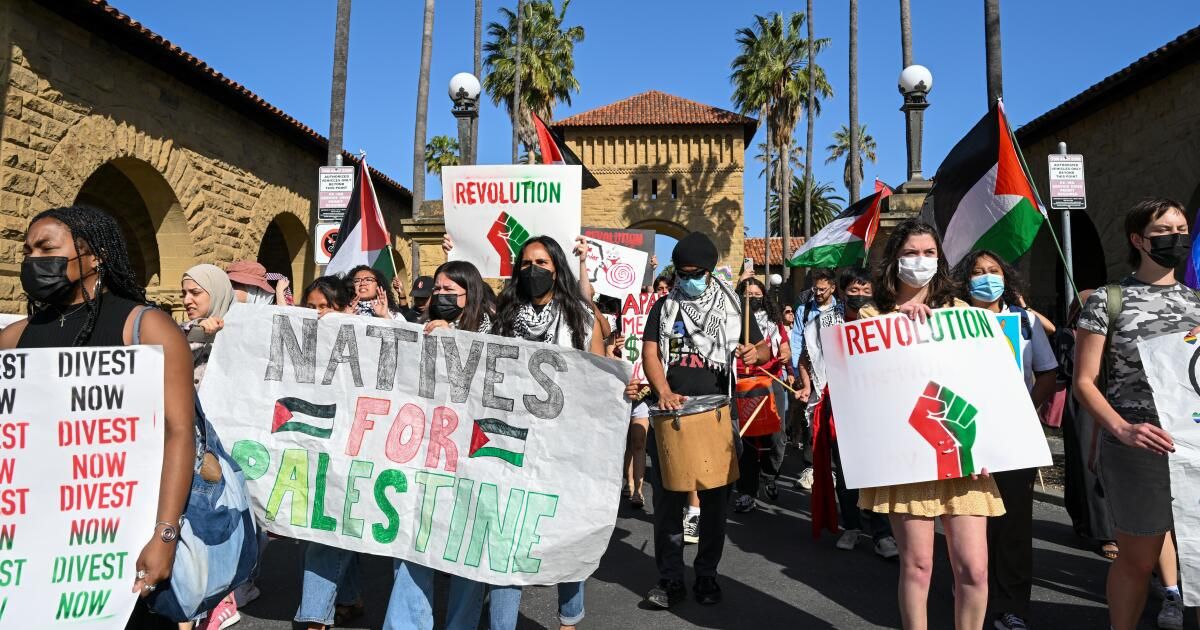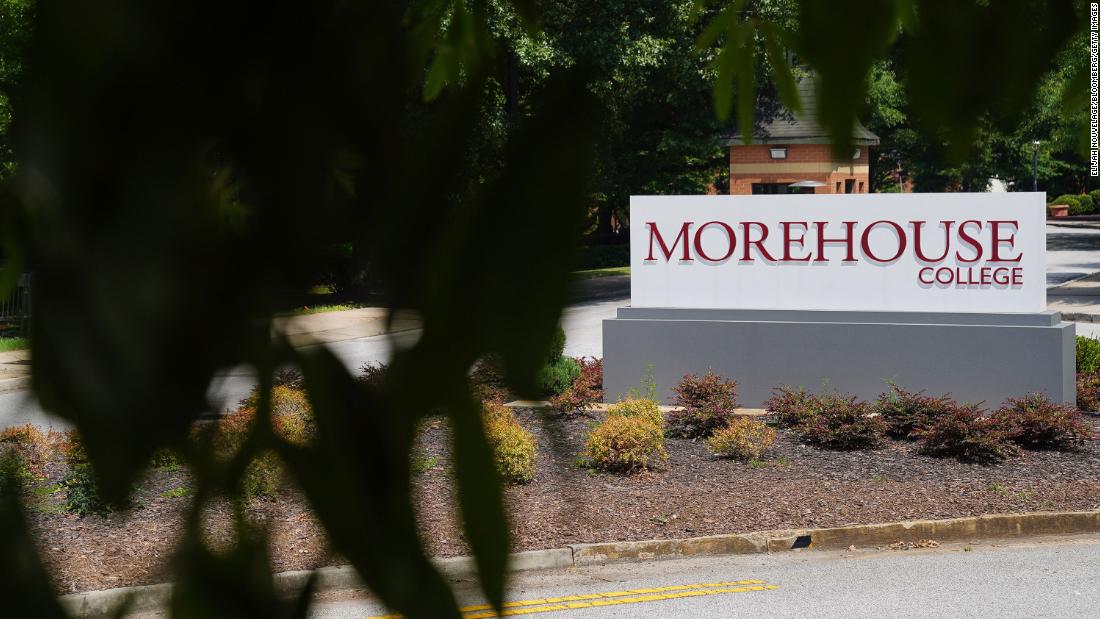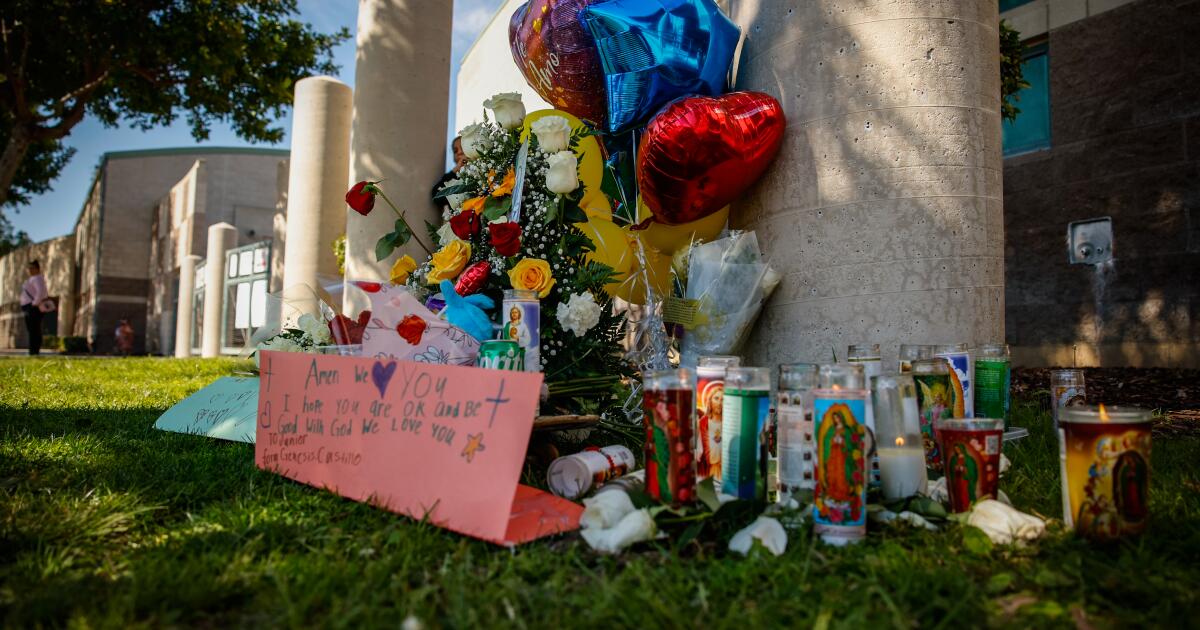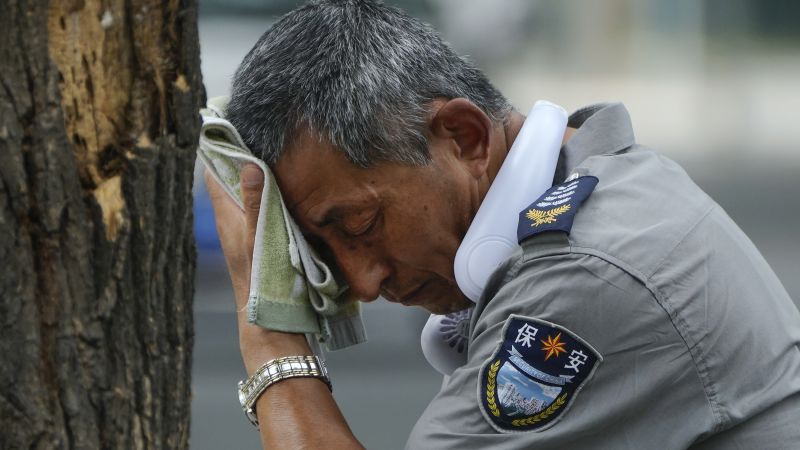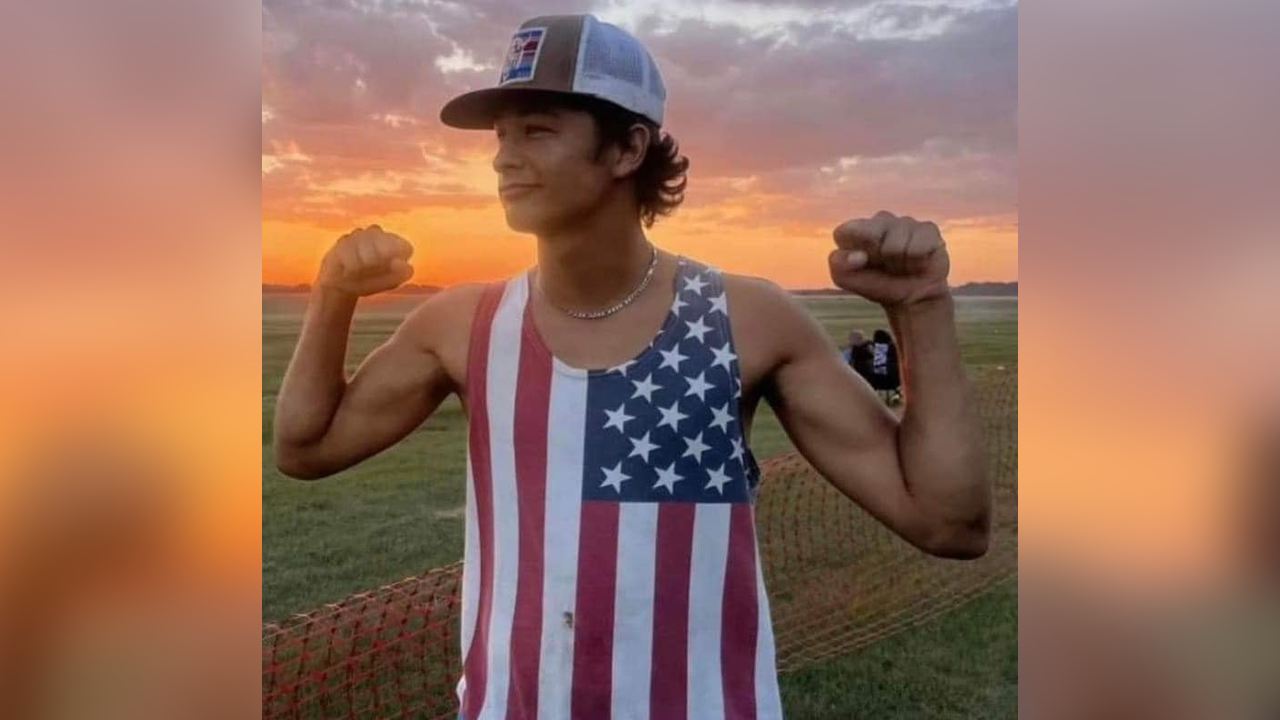Law enforcement officers arrived at Stanford University on Wednesday morning and arrested pro-Palestinian activists who occupied President Richard Saller's office on the last day of spring classes, swearing they would not leave until administrators complied. with their demands to divest.
Around 6 a.m., a small group of students and alumni entered Saller's office in the main courtyard. After barricading themselves inside, they named the building “Dr. Adnan Office” in honor of Dr. Adnan al-Bursh, a prominent Palestinian surgeon who died in April in an Israeli detention center.
“Free Palestine, free,” protesters chanted, as law enforcement officers broke a door with a crowbar and entered the building.
After activists inside the building were detained by deputies from the Santa Clara Sheriff's Office and the Stanford University Department of Public Safety, Liberate Stanford announced that 13 students were arrested. The Stanford Daily reported that one of its reporters was among those detained.
“We love you,” protesters shouted and cheered at the arrested activists as law enforcement escorted them out of the building with their hands tied behind their backs.
“We see you! We love you!” they chanted. “We will be here to free you!”
“STUDENT INF1FADA IS GROWING,” Liberate Stanford wrote in a statement on Instagram while the building was occupied. “We refuse to leave until the Stanford administration and the Stanford Board of Trustees meet our demands and take steps to address their role in enabling and profiting from the ongoing genocide in Gaza.”
About 50 students, most dressed in black and with their faces wrapped in kaffiyehs, linked arms and surrounded the building in solidarity with the student occupiers. Some held a banner that read: “As Gaza bleeds, Stanford stands still. Strip away. Reveal. Amnesty.”
“A group of people illegally entered Building 10 this morning, which houses the offices of the president and chancellor,” the university said in a statement. “The Stanford Department of Public Safety has responded to the scene and is assessing the situation. Other campus operations have not been affected at this time.”
The protesters, who call themselves an autonomous group of students not affiliated with any official student group, are calling on Stanford to add the divestment bill introduced by Stanford Against Apartheid in Palestine to the next Board of Trustees meeting, with a Saller's recommendation to support the bill, disclose fiscal year 2022 finances, and drop all disciplinary and criminal charges against pro-Palestinian students.
“If these demands are met, we will abandon your office, President Saller,” an activist wearing sunglasses, a mask and a keffiyeh said while sitting at a wooden desk inside the building in a video posted to Instagram by Liberate Stanford.
“I want you to think about your legacy,” he added. “No one is going to remember your historical research or your eight months as president. “What they will remember is their silence and their complicity in this genocide.”
Divisions quickly emerged among protesters after the area around the building was spray-painted and vandalized with slogans such as “resistance” and “Kill cops.”
In a statement, Liberate Stanford condemned activists they say “took it upon themselves to spray paint or vandalize the exterior of these buildings.”
“These are not the principles we live by and these actions are disrespectful to the souls of the Palestinians who died in their just struggle,” Liberate Stanford wrote. “The intentions of this movement are not to create unnecessary labor for service workers, and we refuse to let unknown agitators hijack our uprising.”
The occupation comes after months of protests and negotiations between Stanford officials and pro-Palestinian activists. Last year, protesters set up a sprawling encampment, the Sit-In to Stop Genocide, in White Plaza, which became the longest sit-in in Stanford history, until administrators imposed a camping ban in February “due to out of concern for the health and safety of our students.”
In April, activists set up another camp in White Square. On May 20, a small group of protesters attempted to occupy a mechanical engineering building, blocking the entrances with barricades and furniture. Saller told the faculty senate that students involved in that occupation faced “immediate suspension and inability to participate in graduation” and could be subject to criminal charges.

